In this article
Boston Terriers are lovable companions that are always ready to play or show their humans affection. The tough little dogs are a bit compact, averaging 15–17 inches in height and weighing around 12–25 pounds when fully grown. Of course, not every Boston Terrier will be the same size. You’ll find that genetics, care, diet, and even sex play a role in how big these dogs will get. Now, let’s take a crack at answering how big Boston Terriers get so you can be better prepared if you’re planning on bringing one of these amazing dogs into your home.

Facts About Boston Terriers
Originating during the 1860s, the Boston Terrier is a cross between a Bulldog and a White Terrier. One of the most noticeable things about these dogs is their tuxedo coats which have earned them the nickname, “American Gentleman.” Not as excitable as a full-blooded terrier, these dogs are known for being affectionate with their humans. They prefer being with their families above all else. They are very intelligent, making them easy to train, and have been considered one of the most popular dog breeds since 1905.
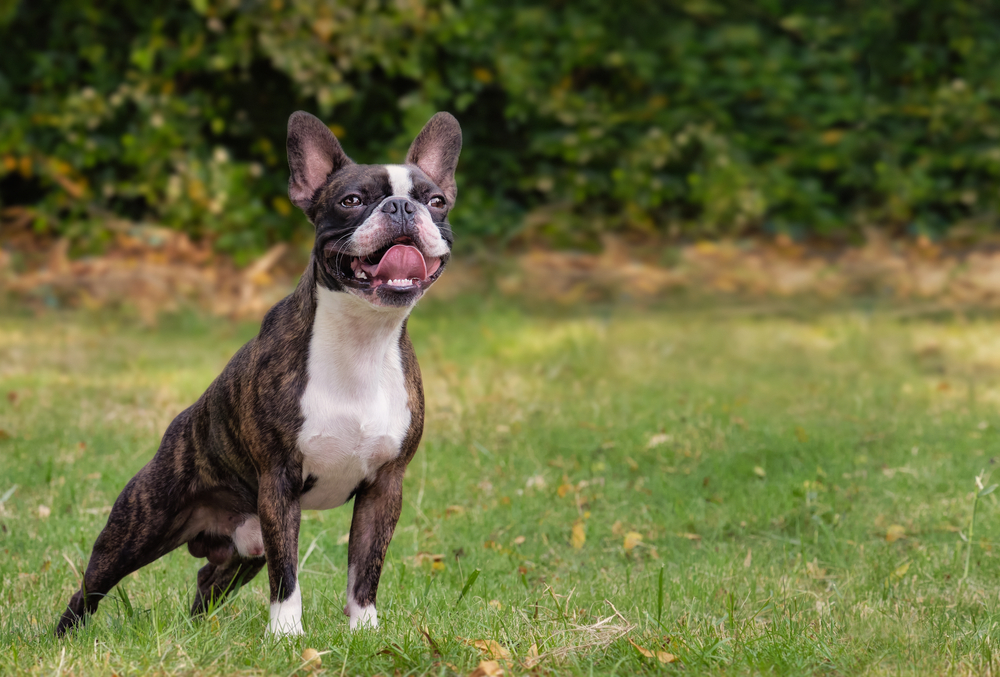
Boston Terrier Size and Growth Chart
When bringing a Boston Terrier puppy home, it’s normal to be curious about how big they may get and how fast they’ll grow. There’s a bit of difference in weight when it comes to male and female Boston Terriers, but they are very similar when it comes to size. Females of this breed will be a bit lighter in most instances.
| Age | Weight Range | Length Range |
| 2 months | 4.5 pounds | 6–8 inches |
| 4 months | 8–9 pounds | 10 inches |
| 6 months | 14 pounds | 12 inches |
| 8 months | 19–20 pounds | 13–14 inches |
| 10 months | 21 pounds | 15 inches |
| 12 months | 23 pounds | 16 inches |
| 14 months | 25 pounds | 17 inches |
When Does a Boston Terrier Stop Growing?
In general, most dog breeds stop growing around 12 months of age. However, Boston Terriers are a smaller breed and they begin slowing down a bit earlier than some bigger breeds. Female Boston Terriers typically stop growing at 1 year old. Males, since they mature slower, may continue growing until they are around 14 months old.
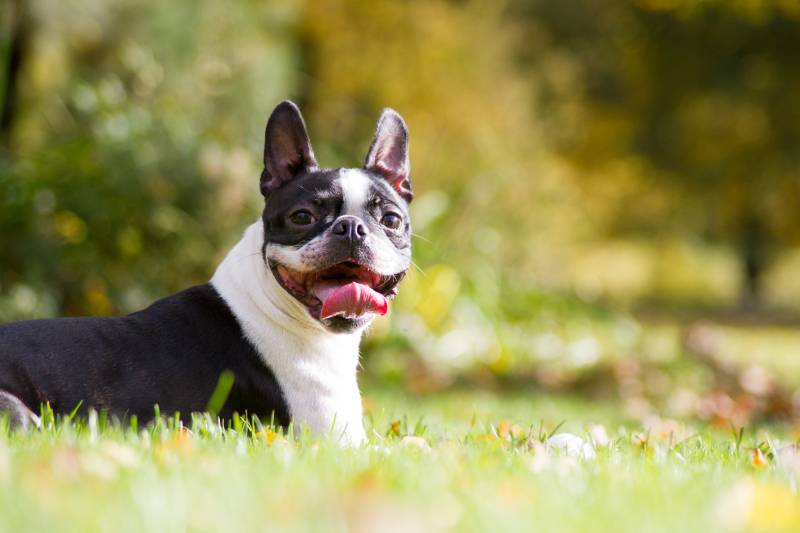
Factors Affecting the Size of Boston Terrier
Like with most dogs, the size of a Boston Terrier can be affected by genetics, the care they receive, and the dog’s activity level. If the dog in question’s parents were considered to be the smaller size, most likely their offspring will be as well. The same can be said if the parents are larger than normal.
The care you give them when it comes to their diet is another big factor for your dog. A proper diet is crucial. Dogs need high-quality food that is high in protein. This is especially true for Boston Terriers since they are an active breed. Always research brands before deciding on a particular one for your dog. If you have questions, a veterinarian will help you determine which way to go.
You’ll also need to keep your Boston Terrier active. Yes, they are naturally on-the-go dogs. However, they do prefer being with their owners. If you live an inactive lifestyle, your dog is most likely to do so as well. Make sure your dog gets proper exercise to avoid obesity and other health issues as they age.
Ideal Diet for Maintaining a Healthy Weight
One of the most important things you should remember when choosing dog food for your Boston Terrier is the life stage. Puppies should eat foods that are specifically developed for their growing needs. Puppies usually eat 3 or 4 small meals per day to keep up with the calories they are constantly burning.
Once your dog is fully grown, you’ll need to switch to adult life-stage foods. This food should have all the vitamins, minerals, nutrients, and proteins a veterinarian feels your dog needs. You’ll also change the feeding schedule. Feeding your dog a larger portion of food twice a day will help keep them fit and healthy.
We recommend getting advice and guidance from a veterinarian if you have any questions or concerns regarding your pet’s diet and weight.
If you need to speak with a vet but can't get to one, head over to PangoVet. It's our online service where you can talk to a vet online and get the personalized advice you need for your pet — all at an affordable price!

How to Measure Your Boston Terrier
If you want to keep up with your Boston Terriers’ growth between veterinarian visits, it’s easier than you’d expect. To weigh your dog, if they won’t sit on the scale for you, simply weigh yourself first. Once you have your weight, pick your dog up and weigh again. The difference is your dog’s weight.
When measuring your dog’s height, you’ll need a soft tape measure. Get your dog to stand still and straight. Start at the floor and measure up to your dog’s shoulders. This is the area where the shoulder meets the neck.
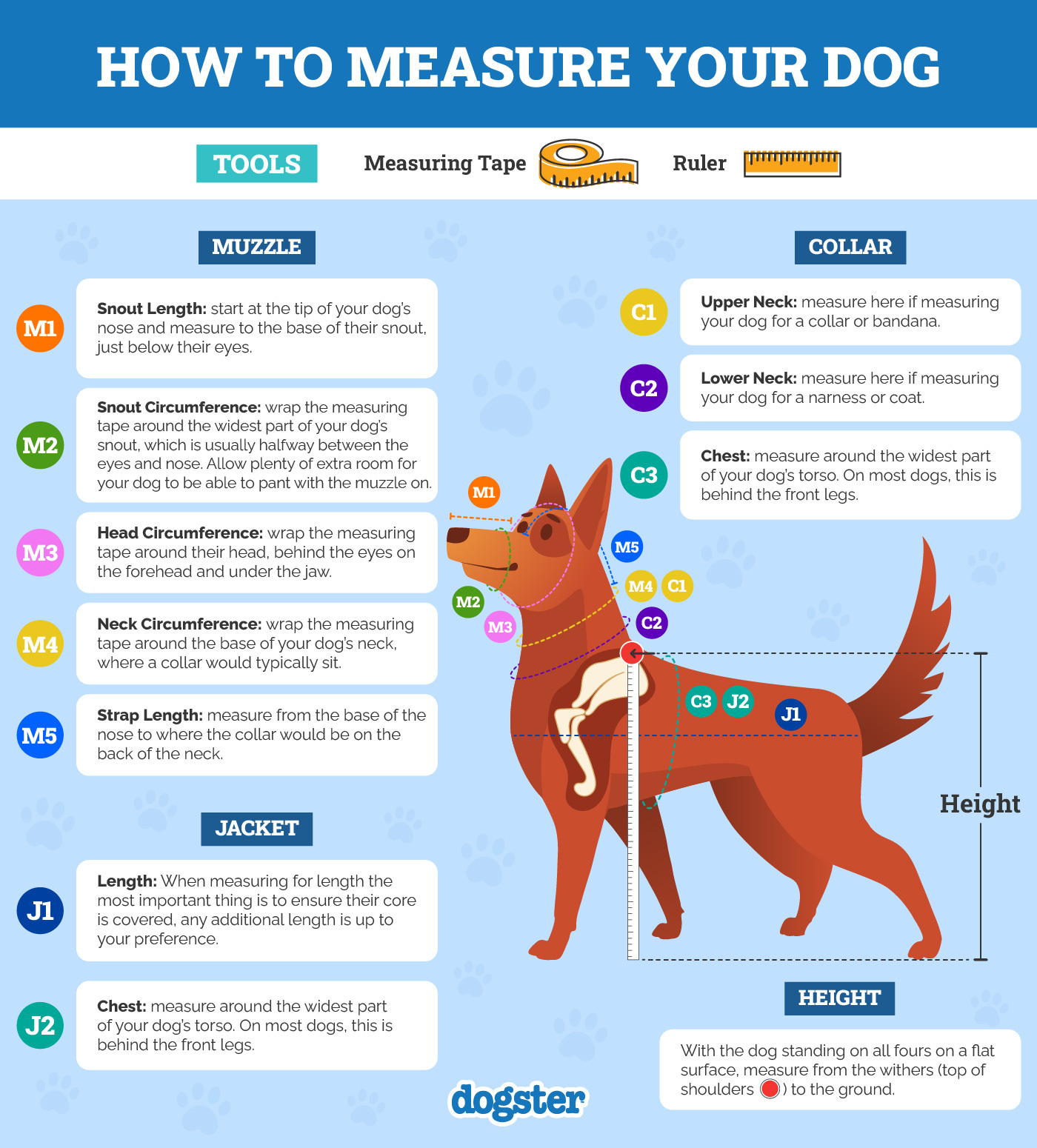

Conclusion
Boston Terriers are not only amazing, loving dogs, but they are compact, muscular dogs that love to be active. Considered a small dog breed, on average, Boston Terriers grow to be 15–17 inches in height. When it comes to weight, Boston Terriers can weigh anywhere between 12–25 pounds. If you’re considering one of these amazing dogs as a companion in your home, we can’t blame you. These adaptable cuties can make perfect pets for apartments, tiny homes, or large family dwellings.
See also:
- 23 Essential Boston Terrier Supplies to Get You Started: Guide
- Do Boston Terriers Bark a Lot? How Much & How to Stop It
Featured Image Credit: Vera Zinkova, Shutterstock
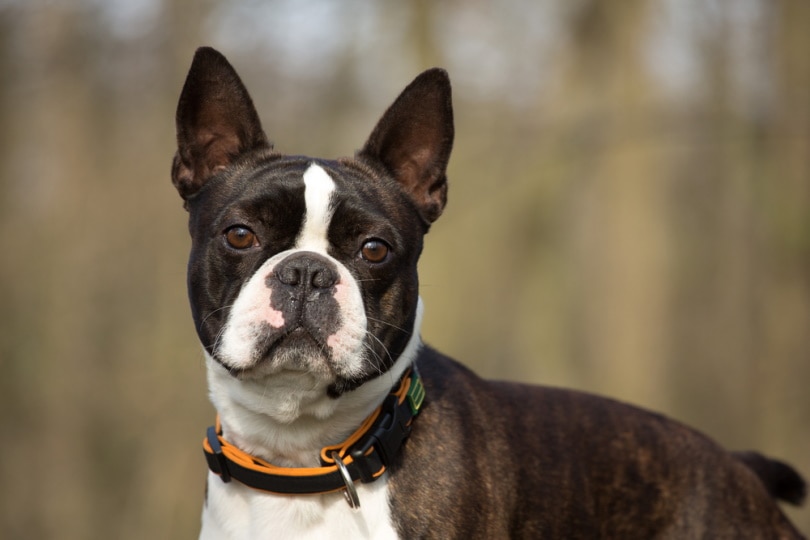

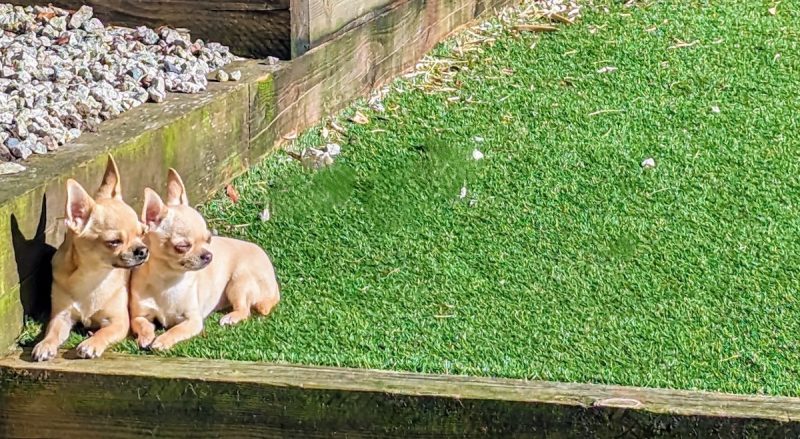

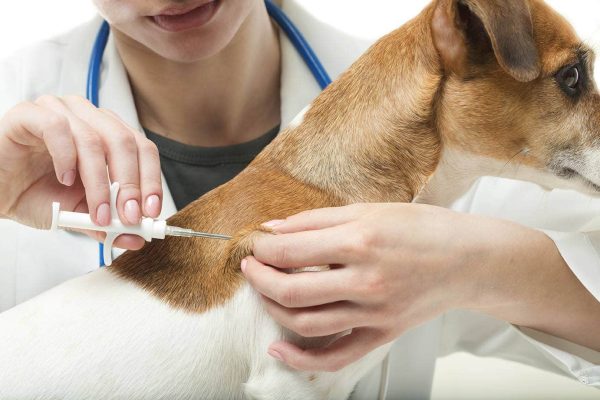

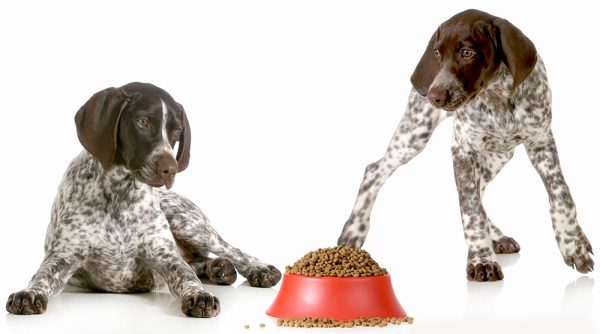
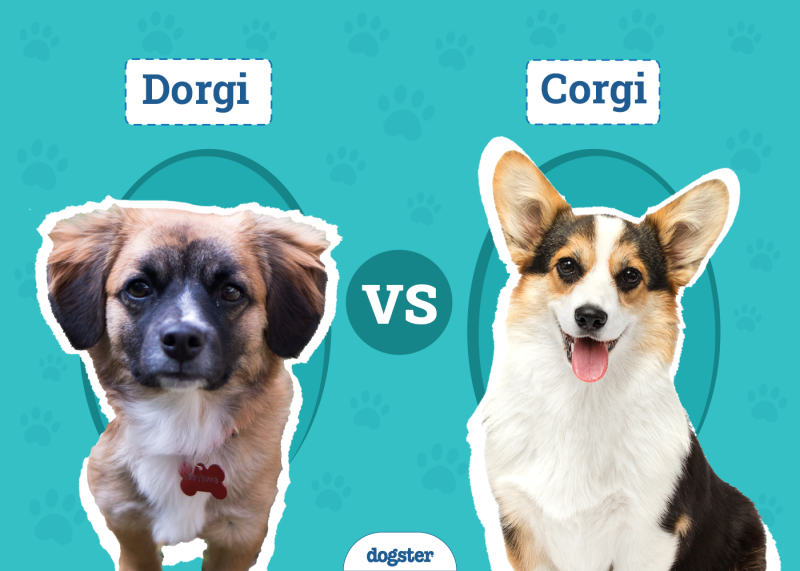
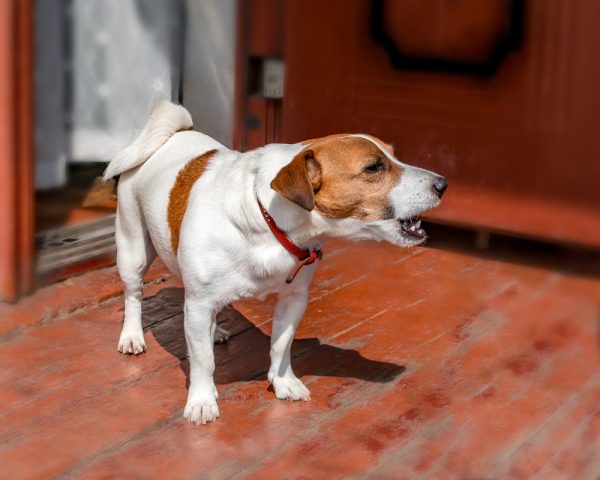
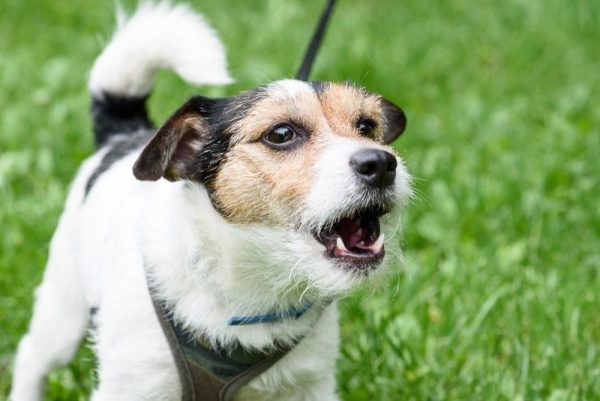

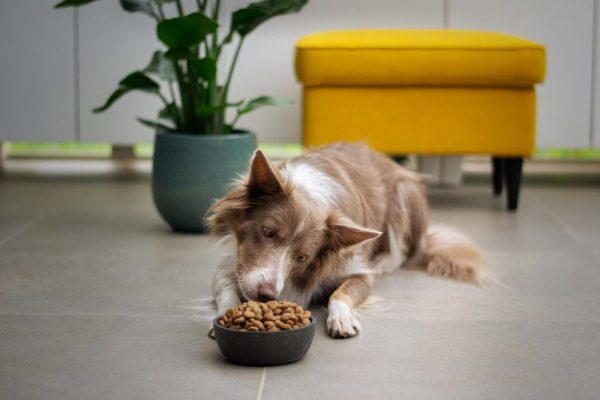


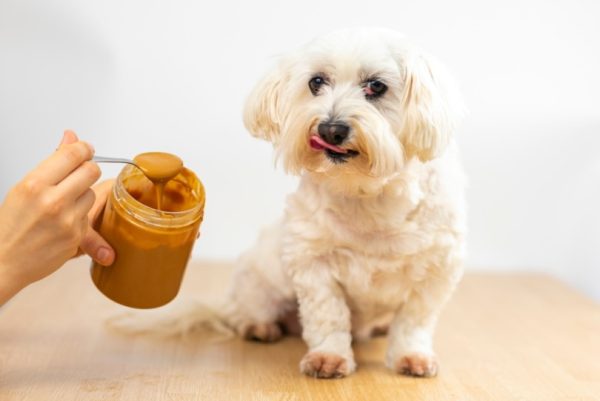
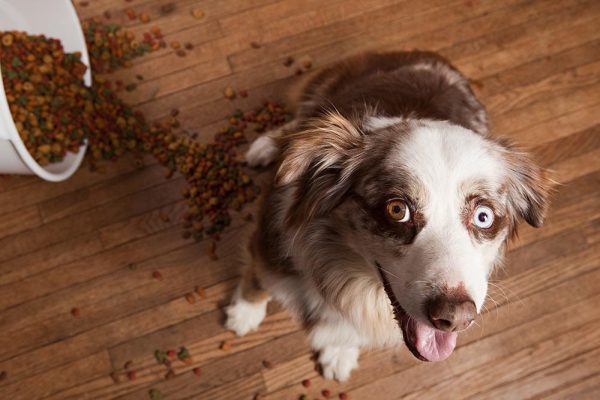

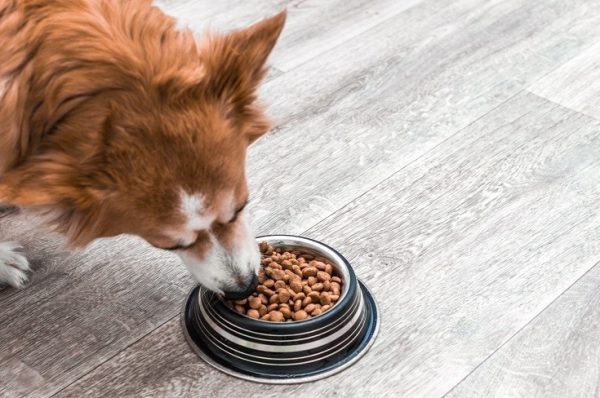
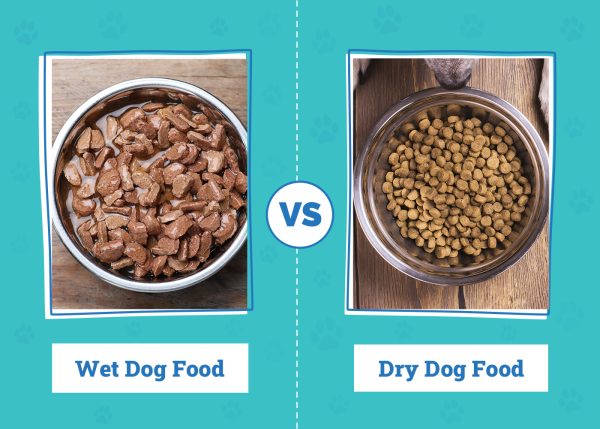



4 Responses
do boston terriors get eye infections. that need surgery
Hi Antoinette! That's a good question. Yes, Boston Terriers are prone to eye problems because of their brachycephalic (short-nosed) anatomy and prominent, bulging eyes. This can include infections, and in some cases, these issues may require surgery. If you have any concerns about your pup's eyes, feel free to reach out to one of our vets at PangoVet. You can book a time that is convenient for you at this link: https://pangovet.com/schedule-appointment/.
It's winter and my Boston Terrier gained weight! He was 25 pounds at the onset of winter but now weighs 27.7!!! I admit I have given him small amounts of homemade peanut butter, pumpkin & oats treats daily as well as 1/8 cup of kibble for behavior training. This is in addition to his 1/2 cup of kibble in the morning & night. How do I wean him off the treats???
Hi Joy, thanks for getting in touch with us. Winter can definitely be a time when pets, especially those with shorter coats, tend to put on a bit of extra weight and he would've been so happy with those extra treats. But no worries, it's great that you're noticing and addressing it now.
To help your Boston Terrier lose some of the weight he’s gained, start by gradually cutting back on the homemade treats. Instead of daily, try giving them every other day and reduce the portion size over time. You can still use treats for training but consider smaller, healthier options like carrots, green beans, or freeze-dried liver, which are lower in calories than peanut butter, oats, and pumpkin. You can also reduce the 1/8 cup of kibble used for training, replacing it with healthier treats and adjusting his daily kibble portions so he doesn’t consume more than necessary. Increasing exercise indoors with activities like fetch or stair climbing will also help burn extra calories.
By cutting back slowly and gradually introducing healthier alternatives, he should adjust without feeling deprived. Hopefully, this helps him shed a little bit of that winter weight! If you have any other questions or concerns, we do have an online vet service, PangoVet, where you can speak to a qualified and experienced veterinarian, and they can help answer any questions you may have, and help you come up with an action plan to help your pup. You can book a video consult with our team at https://pangovet.com – Hope that helps!